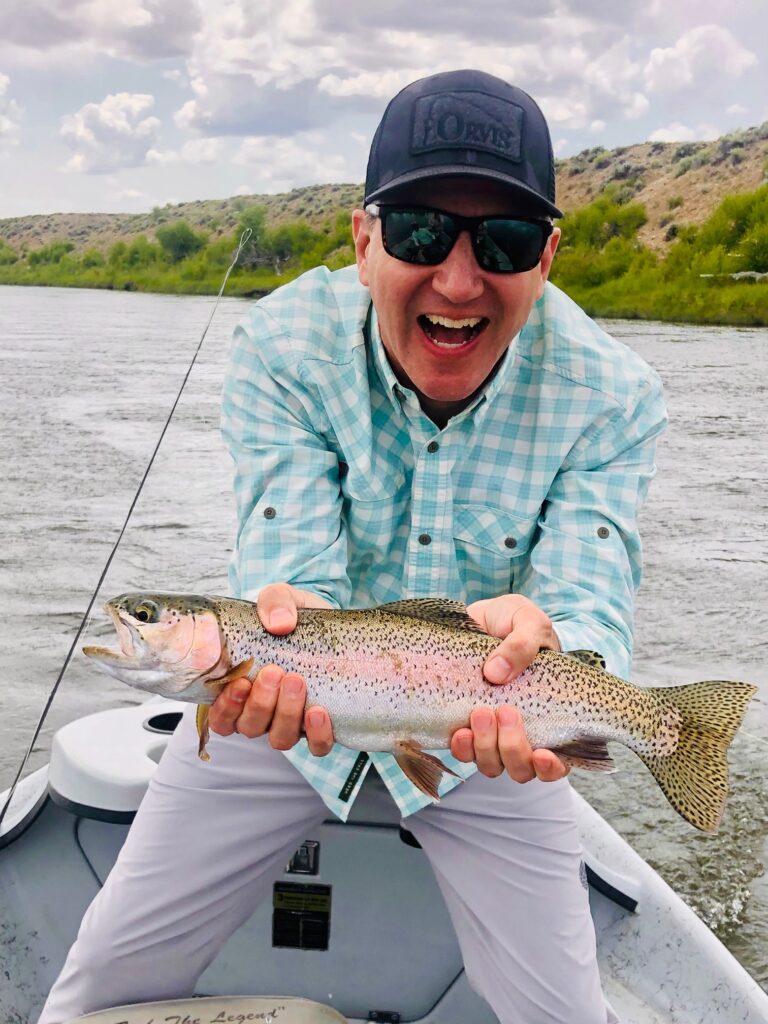Last month Nat Malkus, Rick Hess, and I talked through the current issues. Listen to The Report Card there or wherever you get podcasts. This was just before the Kirk assassination.
From Bellwether:
In an effort to help education organizations build capacity around artificial intelligence, pilot new ways of selling, and experiment with new staffing models, we’re launching a new project: AI cohort for education and youth-serving organization leaders. This is for youth-serving organizations that are not schools – we are serving that part of the sector in other ways on AI. If you would like more information please contact my colleague Amy Chen Kulesa .
Rebecca Goldberg, Akeshia Craven-Howell, and I talked about strategic planning earlier this week on LinkedIn. Look, I get it, you’re a grown adult walking around a room putting stickie notes on large sheets of paper. I’m a skeptic, too. But strategic planning doesn’t have to be like that, and can be instrumental for organizations when it’s done right and well – it’s especially important in chaotic times like this. We get into all that and more. Learn more here.
Here’s a new Bellwether analysis of education media coverage. Academic outcomes, 2%. Great.
And here’s a Bellwether analysis on thinking about outcomes with AI use.
Bellwether does fiscal sponsorships – and doesn’t take organizational political positions.
ICYMI – We lost the smartphone battle. AI is next.
Why we can’t have nice things. Higher education edition.
The idea of a compact around higher education that creates incentive for reforms makes some sense. Could be an opportunity for leadership. It’s not too much to ask colleges and universities to follow federal law, respect civil rights, be attentive to national security, and address affordability. And credit where it’s due, this new gambit is more transparent than some past actions the Administration has taken. Still, this new proposal from the Trump Administration raises two serious issues. First, what are things, even if they have merit, that you don’t want the federal government doing? And, second, and not really second, First Amendment concerns.
Want Eduwonk.com in your inbox via Substack? Sign up for free here.
Loudoun Calling: Is it 2021 in Virginia Again?
TL/DR, it’s not.
The Virginia election is about a month away. Early voting is underway, October surprises abound, and a lot of people are wondering if education will loom as large in 2025 as it did in 2021. Good question. I talked with Carl Cannon on his SiriusXM show and podcast about that, and with the RTD. Dave Weigel also took a look at the dynamics for Semafor.
From RTD:
A few things to keep in mind:
- Big picture: In 2021, Glenn Youngkin had the wind at his back thanks to an unpopular White House incumbent. In 2025, there’s also an unpopular president in the White House—Donald Trump. This time, that’s a headwind, and it was there even before the shutdown. The longer that circus drags on, the worse it gets in the vote-rich, federally dependent parts of the commonwealth. Politically, Trump is underwater in Virginia, which—along with Maryland—has been hardest hit by federal layoffs. Tough landscape for the Rs, good for the Dems.
- On education: People remain frustrated with the schools, and enrollment keeps slipping. But there hasn’t been a singular focusing event like Loudoun County in 2021. Loudoun sure tried: the system punished boys who objected to changing with a girl in their locker room. That case, as inane as it is, hasn’t caught fire outside of conservative media. Nor has a Fairfax case where staff allegedly facilitated at least one underage abortion without parental knowledge. There is a whistleblower on that one. Or the bizarre issue of a sex offender leveraging gender ID to enter girls’ locker rooms around Northern Virginia. Absent something that really crystallizes attention and links it to a policy, these stories are background noise against a more general, and hardened, political environment. The Republicans can’t expect much help: Most media outlets aren’t rushing to cover this stuff.
- The candidates: Former congresswoman and CIA officer Abigail Spanberger, the Democratic nominee, benefits from a strong, accurate frame of normalcy. She’s mostly middle of the road. She was early to call out “defund the police” nonsense, for example. Yes, she fumbled easy questions on transgender youth and sports, but a pliant media isn’t making much of it, and to most voters she seems moderate and competent. Because she is. Crucially, she hasn’t had a galvanizing ‘don’t listen to parents’-style gaffe. Republican Lt. Governor Winsome Earle-Sears, by contrast, has struggled to focus the race on any particular issue. She hasn’t landed on schools concealing gender transitions from parents, for instance, or school choice. Overall, her campaign has lacked clarity and message discipline, which is an acute problem in this climate where you need something to break through to succeed.
- Youngkin’s record: On education policy, the governor has a good record overall. (Spoiler: his 2022 stance on transgender students, which seemed so controversial at the time, is on its way to being the default consensus position.) The state board, where I served until July, just raised academic standards after years of slippage, in some cases to the lowest in the country. The board is also launching a performance reporting system to close the “honesty gap,” so parents get real information instead of the old 9-in-10-schools-are-fine line, even as achievement declined and then cratered with the pandemic. Virginia is also implementing Science of Reading reforms and making standards more specific, content-rich, and academic. That’s the good news. The political problem for Republicans is…who cares? These changes matter in real life for young people, but they don’t fire up the GOP base. Education politics are mostly downside. In fact, Youngkin has taken real heat from Republican base activists for not doing more on the culture war front. You might not have heard about that because we live in bubbles. Meanwhile, the Democratic base—and teachers unions—despise these reforms despite all the “We love science and data” yard signs. It’s own bubble.
Bottom line: The environment is tough for Republicans. The ticket isn’t unified (the GOP’s candidate for Lt. Governor is openly gay, which the top of the ticket, Earle-Sears, still can’t abide, even in 2025). Independents are sour. Democrats are angry. The race feels nationalized in many parts of Virginia. The education flashpoints of 2021 aren’t breaking through this time. Barring a major surprise, Virginia’s first (yes, first(!), did I mention it’s 2025?) female governor looks likely to be Abigail Spanberger.
Friday Fish Porn
Here’s America Succeeds’ Tim Taylor and his wife out on the Green in Wyoming.
In this unique archive you will find hundreds of pictures of education types and their relatives with fish on rivers, lakes, and streams all over the world. Including some past ones of the fishing Taylors.
Want Eduwonk.com in your inbox via Substack? Sign up for free here.
View the original article and our Inspiration here


